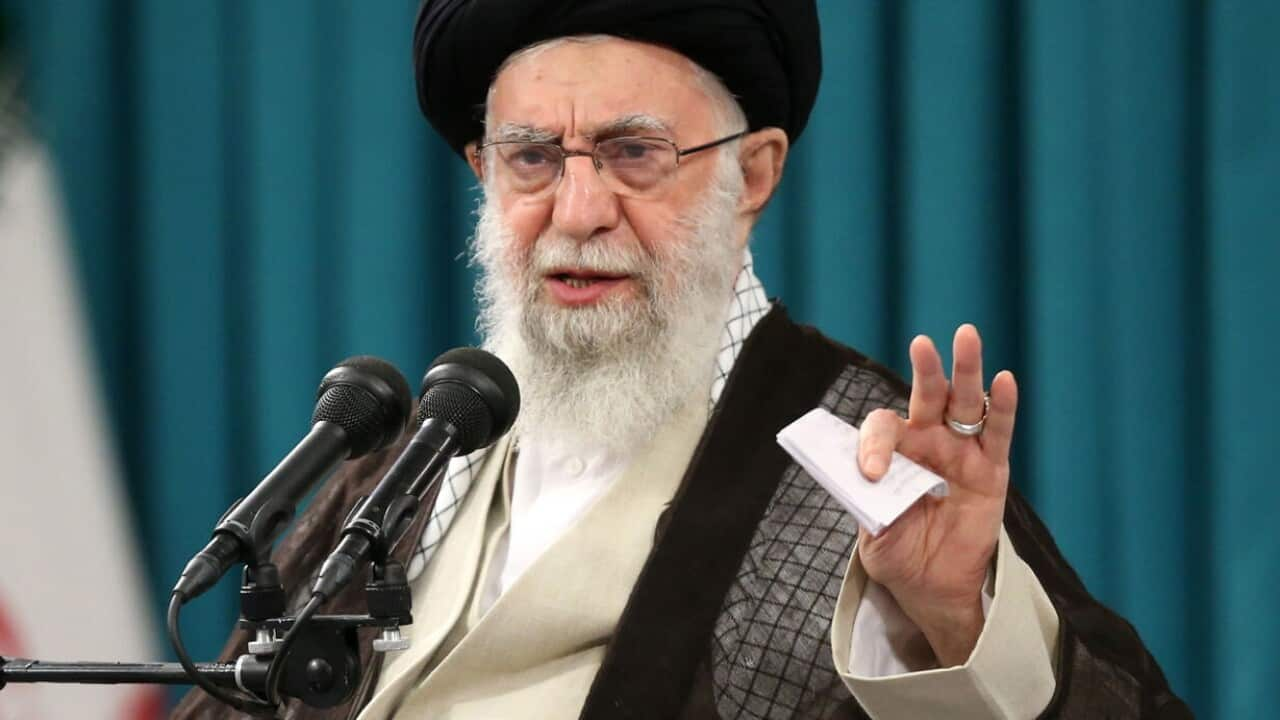KEY POINTS
- A Tehran-based French thinktank will be shut down in protest against a publication by French magazine Charlie Hebdo.
- The magazine published a special edition, which included caricatures of Iran's supreme leader.
- The research institute had previously been reopened as a sign of warming relations between the two countries.
Iran has announced the closure of a Tehran-based French research institute in protest against cartoons of the Islamic republic's supreme leader Ayatollah Ali Khamenei published by French satirical weekly Charlie Hebdo.
The magazine printed the caricatures in support of months of protests in Iran as part of a special edition to mark the anniversary of the which left 12 people dead, including some of its best known cartoonists.
"The ministry is ending the activities of the French Institute for Research in Iran (IFRI) as a first step," the Iranian foreign ministry said in a statement on Thursday (local time), a day after Tehran had warned Paris of consequences.

The Tehran-based French Institute for Research in Iran has been closed after the publication of the Charlie Hebdo edition commemorating the 2015 terror attack on its office. Source: EPA / Abedin Taherkenareh
Iran has been shaken by over three months of protests triggered by the September 16 death in custody of Mahsa Amini, 22, an Iranian Kurd who was arrested for allegedly violating the country's strict dress code for women.
It has responded with a crackdown that Oslo-based group Iran Human Rights said has killed at least 476 people in protests, which Iranian officials generally describe as "riots".
IFRI, affiliated with the French foreign ministry, is a historical and archaeological institute founded in 1983 after the merger of the French Archaeological Delegation in Iran and the French Institute of Iranology in Tehran.
Ministry spokeswoman Anne-Claire Legendre said in a statement that Paris can't verify the Iranian statement, but called it "clearly regrettable if confirmed".
"We haven't received any official information at this point concerning the Iranian authorities' reported announcements on the closure of the French Institute for Research in Iran," said Legendre, calling it "a major centre of culture and exchange".
Located in the centre of Tehran, IFRI had been closed for many years but was reopened under the 2013-2021 presidency of the moderate president Hassan Rouhani as a sign of warming bilateral relations.
Charlie Hebdo, seen by supporters as a champion of freedom of speech and by critics as needlessly provocative, has a style that is controversial even within France.
But the country was united in grief when in January 2015 the magazine was targeted in a deadly attack by Islamist gunmen who claimed to be avenging the weekly's decision to publish cartoons of the Prophet Mohammed.
The latest issue contained a variety of sexual images depicting Mr Khamenei and fellow clerics. Other cartoons pointed to the authorities' use of capital punishment as a tactic to quell the protests.
Mr Khamenei, the successor of revolutionary leader Ayatollah Ruhollah Khomeini, is appointed for life. Above day-to-day politics, criticism of him is prohibited inside Iran.
Iran's Foreign Minister Hossein Amir-Abdollahian tweeted that "the insulting and indecent act of a French publication in publishing cartoons against the religious and political authority will not go without an effective and decisive response".
Iran's foreign ministry also summoned French ambassador Nicolas Roche on Wednesday.
"France has no right to insult the sanctities of other Muslim countries and nations under the pretext of freedom of expression," foreign ministry spokesman Nasser Kanani said.










